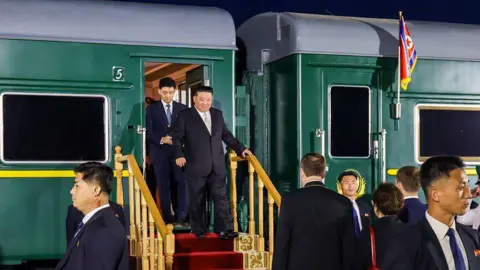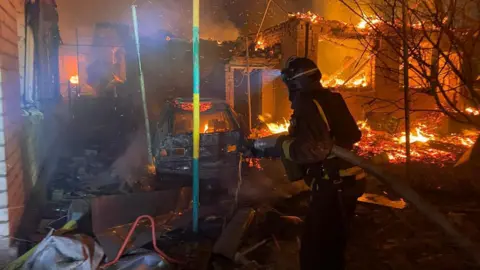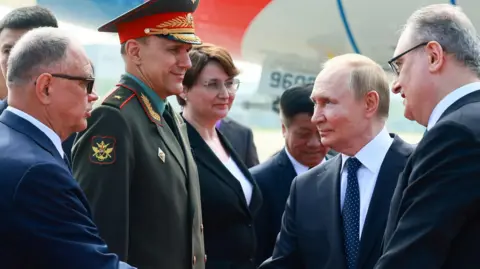VIENNA (AP) — Iran and the United Nations nuclear watchdog have reached a landmark agreement allowing the International Atomic Energy Agency (IAEA) access to all of Iran's nuclear facilities. As part of the deal, Iran is also required to report on the status of materials located at sites that faced recent attacks from Israel.
The accord was revealed after a meeting involving IAEA Director General Rafael Grossi, Iranian Foreign Minister Abbas Araghchi, and Egyptian Foreign Minister Badr Abdelatty. Although specific details of the agreement remain undisclosed, Grossi emphasized its importance while addressing IAEA's board of governors in Vienna.
Grossi stated that this document creates a clear framework for implementing inspections and access, which are deemed crucial for ensuring cooperation. He indicated that the agreement encompasses all facilities within Iran, including those impacted by attacks, along with expectations for reporting on nuclear materials at these sites.
“The technical nature of this document signifies a profound shift. Iran and the agency are set to resume comprehensive cooperation, which demands immediate action,” Grossi declared.
The agreement comes in the wake of President Masoud Pezeshkian signing a law that suspended Iran’s cooperation with the IAEA after a series of military confrontations with Israel earlier this summer. During the conflict, Iranian nuclear sites were targeted by both Israel and the U.S.
Since the outbreak of hostilities, IAEA inspectors have struggled to verify Iran’s enriched uranium stocks, raising concerns about potential nuclear weapon capability. A report indicated Iran holds over 440 kilograms of uranium enriched to 60%, enough for multiple nuclear weapons if further processed.
“In the event of any hostile actions against Iran, including reinstated sanctions, we will consider this agreement nullified,” warned Araghchi. He reinforced that negotiations are taking place at a sensitive time, as European nations prepare to potentially reimpose sanctions citing Iran's non-compliance with earlier agreements aimed at halting its weapon development.
The path forward involves balancing geopolitical tensions, as Iran is expected to provide transparency and accountability to alleviate international fears regarding its nuclear intentions.




















